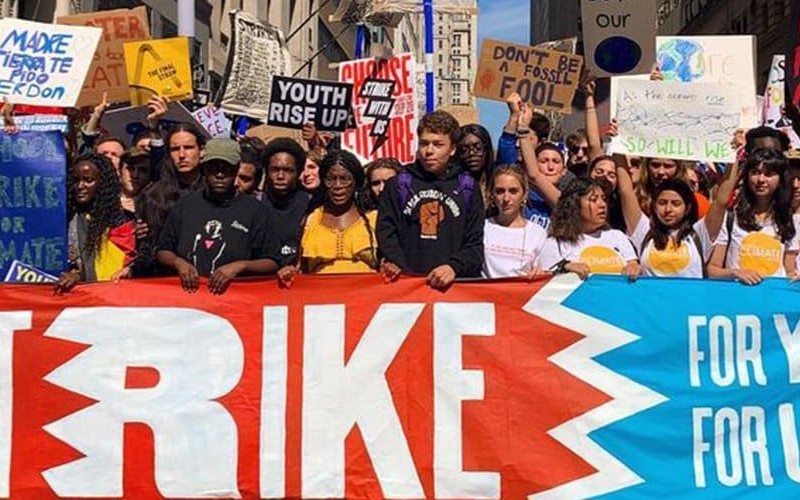New Report Confirms We’re Almost out of Time to Avoid Climate Catastrophe
The latest United Nations report has just been released, and the news is sobering – we are running out of time to save our planet from the catastrophic effects of climate change.

These Gen Z’ers are Doing Everything they can to Save Us
The fate of our planet is hanging in the balance, warns the latest United Nations report released March 20th, 2022. It took more than six years and the contributions of thousands of dedicated climate scientists to arrive at a sobering conclusion: the chance to secure a livable future for everyone on Earth is slipping away.
The clock is ticking, and the window of opportunity to save our planet is rapidly closing.
Previous reports detailed the irreversible changes already underway due to climate change, such as rising sea levels, warming oceans, and shifts in food availability.
But we aren’t out of hope just yet. The latest report suggests that the technology needed to adapt to climate change and reduce harmful emissions is readily available. It outlines a clear path to a more sustainable world and a stable climate. The key now is to mainstream effective and equitable climate action.
Scientists have highlighted the threats posed by heat waves, the spread of infectious diseases, and other concerns, but also presented potential solutions, including shifting to renewable energy and halting the construction of new fossil fuel infrastructure.
According to IPCC Chair Hoesung Lee, “If we act now, we can still secure a liveable, sustainable future for all.” Taking action to reduce losses and damages to nature and people will benefit the environment and have a ripple effect across society.
So who is meeting the challenges head-on in order to achieve a sustainable world for ourselves and future generations?
How BIPOC Youth Are Taking the Lead in Climate Activism
BIPOC communities are
disproportionately affected by the impacts of climate change. From living in areas that are more vulnerable to extreme weather events to breathing poor air quality that worsens respiratory illnesses, these groups are bearing the brunt of environmental change.
Existing inequalities, such as access to healthcare and education, are only worsened by the impact of the environment. It’s a multi-layered issue that requires attention and immediate action to create lasting change.
“[Climate justice] is often a white-led movement—even though it should be the minorities and BIPOC folks on the frontline,”
youth leader Diana Fernandez said. “They’re the ones impacted by the environment the most.”
Of course,
Greta Thunberg is a household name as a sustainability leader, but many young BIPOC environmental activists are also leading the charge against climate change and advocating for environmental justice, often using social media platforms to amplify their message, raise awareness, and mobilize people around the world to take action against climate change.
Mari Copeny, also known as “Little Miss Flint,” has been an advocate for clean water in Flint, Michigan, since the age of eight. Mari first gained national attention in 2016 when she wrote a letter to President Barack Obama, inviting him to visit her hometown and see firsthand the devastating effects of the
city’s water crisis.
Since then, Mari has been a tireless advocate for clean water and environmental justice, working alongside organizations such as the Women’s March, Sierra Club, and Climate Justice Alliance. Through her activism, Mari has raised awareness about the environmental issues plaguing her community, while advocating for policy changes that prioritize the needs of marginalized communities.
Another powerful voice for clean water and environmental justice is Autumn Peltier, a young Indigenous activist hailing from Wiikwemkoong First Nation in northern Ontario, Canada. Autumn began advocating for clean water in her community at the age of eight and has since become a leading advocate for water issues in Canada and around the world.
Her message of urgency and action has been featured in major media outlets around the world, inspiring young people everywhere to join the fight for a more sustainable future, and her dedication and leadership have not gone unnoticed – in 2018, she received the prestigious “Spirit of the UN” award for her environmental advocacy work.
Through their activism, these young leaders are not only raising awareness about the impacts of climate change but also advocating for environmental justice and policy changes that prioritize the needs of marginalized communities.




